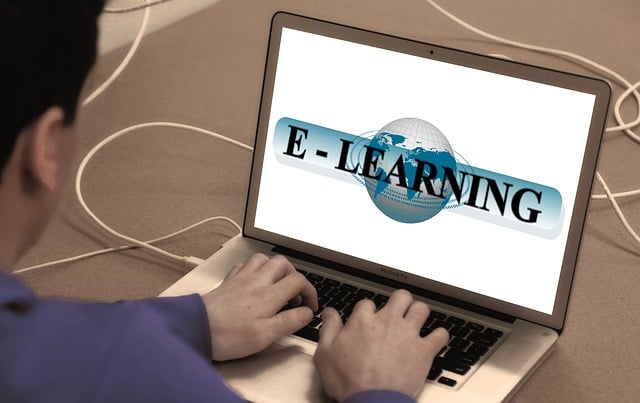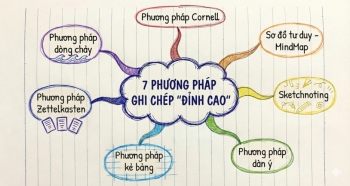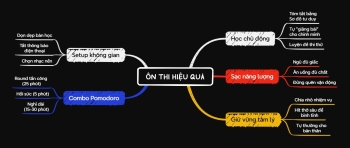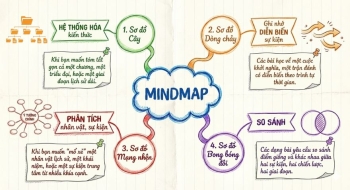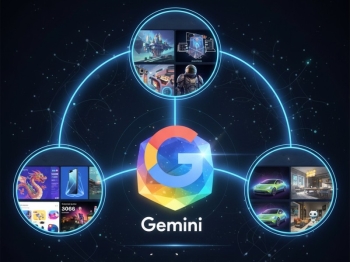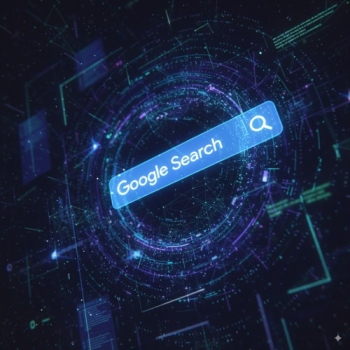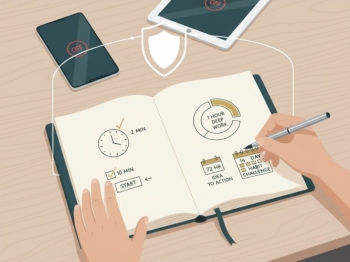You don't just need to study hard – you need to optimize your learning. AI acts like an "auxiliary brain," helping you eliminate repetitive, tedious tasks so you can dedicate all your energy to deep thinking and creative problem-solving.
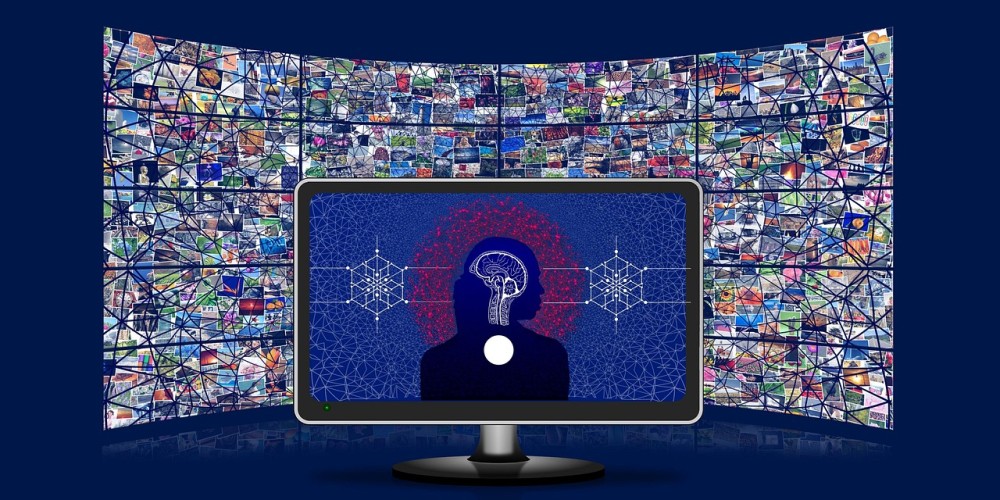
WHAT IS AI IN LEARNING? UNDERSTAND IT IN 30 SECONDS
Imagine having a dedicated support team available 24/7:
- A patient virtual tutor: Always ready to explain difficult concepts without ever getting annoyed.
- A smart secretary: Automatically organizing your chaotic notes into clear mind maps.
- A personal study coach: Tracking your progress and reminding you to review at optimal times.
- A language expert: Correcting even the slightest pronunciation errors you make.
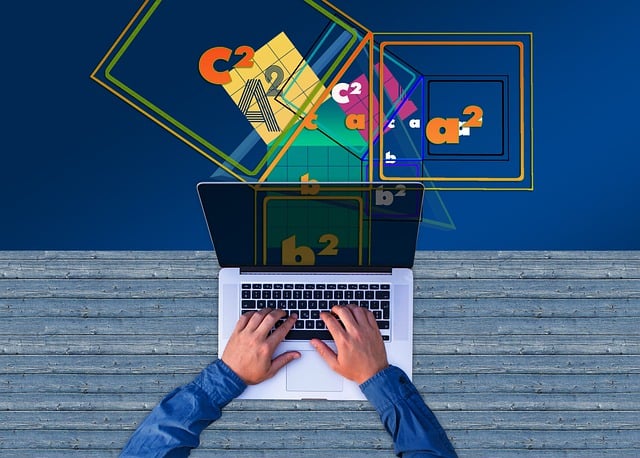
All these capabilities are packed into your phone or computer. That's the power of AI in education.
HOW DOES AI WORK INTERNALLY?
Every interaction you have is a "lesson" for the AI. This process happens continuously:
- Data Collection: AI records your answers, mistakes, and completion times.
- Error Pattern Analysis: It identifies if you frequently make mistakes with past perfect tense or confuse chemical laws.
- Prediction & Suggestion: Based on analysis, AI prioritizes areas where you're weak and automatically generates additional exercises tailored to your level (adaptive learning).
- Instant Feedback: It provides concise explanations for errors and offers illustrative examples, helping you "lock in" knowledge immediately.
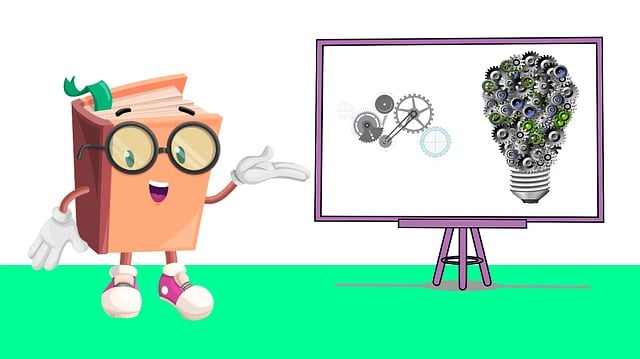
TOP 12 AI TOOLS & CATEGORIES FOR STUDENTS
The world of AI tools is vast. Here are the most popular categories you should know:
- Personalized Learning & Test Prep: Khan Academy, math practice apps, exam prep apps that adapt difficulty.
- Conversational AI (Chatbots): chatgpt, Claude, Gemini... For explaining concepts, creating quizzes, or role-playing as an interviewer.
- Language Learning: Duolingo, Elsa Speak, Memrise utilizing speech recognition and spaced repetition.
- Writing Assistance: Grammarly, quillbot for grammar checks, paraphrasing, and summarizing text.
- Question & Flashcard Generation: Tools that quickly generate multiple-choice questions or Anki flashcards from a chapter of a book.
- Step-by-Step Math & Science Solutions: Photomath, wolframalpha for formulas and detailed solution steps.
- Programming Support: AI code helpers for suggestions, debugging, and code explanations.
- Smart Note-Taking: AI to summarize lectures from audio files or create mind maps from pdfs.
- Multimedia Experiences: AR/VR technology for virtual chemistry experiments or exploring historical sites.
- Time Management: AI-powered schedulers and smart review reminders.
- Communication Analysis: Scoring fluency, rhythm, and intonation for presentations or foreign language speaking.
- Learning Content Creation: Generating infographics, historical timelines, mind maps, explanation videos (text-to-video).
![học AI]() AI is integrated into e-learning systems to enhance learning experiences (Image: Pixabay)
AI is integrated into e-learning systems to enhance learning experiences (Image: Pixabay)
10 "GOLDEN" BENEFITS OF LEARNING WITH AI THAT TEXTBOOKS CAN'T OFFER
- Learn anytime, anywhere.
- Instant feedback, no waiting.
- Personalized learning paths.
- Access to endless knowledge resources.
- Learn through multiple formats (text, audio, visual).
- Personalized psychological support: AI detects when you're losing focus and suggests short breaks.
- Active Learning: AI asks probing questions to deepen your understanding.
- Knowledge Chunking: Breaks down complex topics into "micro-learning" segments of 5-7 minutes.
- Visual Progress Tracking: Dashboards show your learning curve, boosting intrinsic motivation.
- Collaborative Learning Support: Generates debate topics, simulates workshops, or role-plays interviews for group study.

5 PITFALLS TO AVOID WHEN SELF-LEARNING WITH AI
- Hallucination: AI can sometimes "make up" information or non-existent citations. Always cross-reference facts.
- Over-reliance: Accepting answers without engaging in problem-solving or critical thinking.
- Loss of personal voice: Overusing AI for writing corrections can make your text sound "smooth" but impersonal.
- Ethical issues: Using AI for cheating is academically dishonest and undermines your own learning.
- Cognitive laziness: Your brain becoming accustomed to "receiving" information without effort can reduce sustained focus.

THE "AI SANDWICH" STRATEGY: LEARN SMART, NOT LAZY
This framework is the most effective way to leverage AI without becoming intellectually passive:
- Bread Layer 1 (You): Read material yourself, outline ideas, attempt to solve problems independently.
- Filling (AI): Ask AI for feedback on your outline, identify logical errors, suggest better structures, or explain concepts you don't grasp.
- Bread Layer 2 (You): Based on AI's suggestions, revise and rewrite using your own language and examples.
This way, your brain remains actively engaged in the two most crucial steps, ensuring your core critical thinking skills are constantly honed.

5 READY-TO-USE PROMPT EXAMPLES FOR STUDENTS
(Simply copy, paste, and adapt to your content)
A. Explain a Concept: Explain the law of conservation of energy to a 10th-grade student in under 120 words, include a real-life example, and add 1 multiple-choice question to test understanding.
B. Create a Revision Quiz: Create 5 multiple-choice questions about World War II, with 2 questions on causes and 3 on outcomes. Mark the correct answers.
C. Practice English Speaking: Act as an IELTS examiner. Ask me 3 questions in Speaking Part 3 on the topic of "technology". After I answer, provide feedback on my grammar, vocabulary, and suggest improvements.
D. Analyze Writing Errors: I am an 11th-grade student. Here is my argumentative essay paragraph: [Paste your paragraph here]. Please identify 3 main logical fallacies, explain why they are fallacies, and suggest how to fix them while maintaining my voice.
E. Smart Summarization: Summarize the following article into 3 main bullet points, each under 20 words: [Paste link or text here].

CONCLUSION: YOU ARE THE ARCHITECT, AI IS THE SUPER TOOL
AI doesn't replace smart learning – it amplifies how you learn. A smart user knows how to ask the right questions, leverage feedback for deeper understanding, uphold academic integrity, and continuously develop critical thinking.
Your generation has an unprecedented advantage: boundless knowledge combined with powerful personalized tools. Harness it wisely, and you'll shorten your learning curve, but remember, you must still walk the path yourself.
See more: What is a Mind map? 4 types to help you learn faster & remember more

